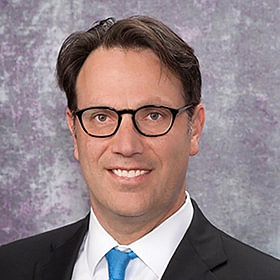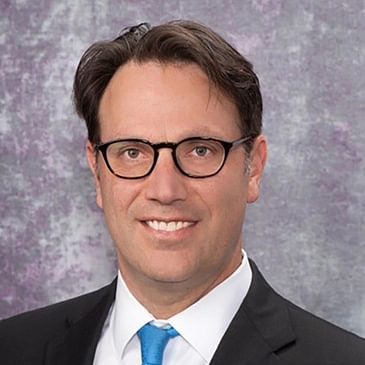For a full transcript of this episode, click here.
My conversation today is with Will Shrank, MD. Dr. Shrank led the evaluation group at CMMI (Center for Medicare and Medicaid Innovation). He has spent time in the private sector, first at CVS Health and UPMC (University of Pittsburgh Medical Center) as chief medical officer of the health plan in Pittsburgh, and then as the chief medical officer for Humana. Now he is a venture partner at Andreessen Horowitz and doing some consulting for CMMI.
We start out this conversation talking about waste in healthcare. In fact, Dr. Shrank was on a team who did a study about waste in the US healthcare system. (The article is, unfortunately, firewalled.) In that study, it says estimates suggest we have upwards of a trillion dollars of waste a year.
There’s two main groupings of said waste, turns out. The first is in administrative failures. There’s three subcategories here: fraud, waste, and abuse; administrative complexity; and pricing failures.
Then there’s the clinical failures side of the waste house. There’s three subcategories here as well, and they are failures in care coordination, failure in care delivery, and then low-value care. Dr. Shrank digs in a bit on each of these in the interview that follows, but I have to say, I go in fast for the now what. Great that we know where the waste is coming from, because gotta know the problems to solve for them.
But really, what’s the best way to solve for this waste? You know me by now, so I, of course, point out immediately that someone’s waste is someone else’s profit. So, that’s a wrinkle. And it’s a really rough wrinkle, because now you have groups lobbying to basically protect the waste. As just one example, what are pricing failures, after all, if not someone else’s margin?
Major spoiler alert here, but Dr. Shrank says one sort of broad-stroke solution is aligning incentives with higher-quality care, paying for the longitudinal patient journey, and paying for outcomes. If you do this, then at least the clinical failures side of the equation could improve.
The implication here is that if the incentive is to be accountable for value—which is, you know, numerator quality denominator cost—then the supply chain has an incentive to reduce its own waste because effectively, at that point, it’s coming out of their pocket as opposed to somebody else’s.
Will this resetting of the financial model happen overnight? That was a rhetorical question that we all know the answer to. Commercial payers are slow to change, and all but the best employers have been (historically, at least) busy making extremely lateral moves and going nowhere fast. Few seem super inclined to reward and pay for what they care about rather than just negotiating a price.
I sort of say this to Dr. Shrank, and he says, yeah, true enough. I’m paraphrasing with a lot of creative license right now, but he says, let’s reset our expectations with reality. We’ve actually come a pretty long way, baby, in not a particularly long time if you consider the whole value-based thing really only started not that long ago, relatively speaking.
So, there will be problems to overcome and bumps in the road. We should expect that, and we haven’t had the time to work them all out yet. I think a couple of other interesting insights for me, one was a little sidebar we go off on about the power that PCPs might find themselves wielding if they can gang up and harness it. And this is kind of starting. We’ll see if it goes anywhere.
I recently heard a story about a bunch of employed PCPs who went to their health system bosses and asked to stand up an APCP (advanced primary care practice) able to coordinate care, etc, do all the things that at this juncture we know are the right things to do for patients. Now they got shot down—bam!—with the backhands from above. I hope those engaged and activated PCPs quit and start up their own thing. Maybe they will. PCPs getting together here could be a way to solve for waste if they can gang up and harness it.
And that’s actionable if you happen to be a PCP or are looking to continue to employ them moving forward. The potential rising power of PCPs might cause some health systems to rethink some of the choices they are making (ie, the choice to employ PCPs as RVU [relative value unit] referral machines). PCPs, better than anyone, can see the harm inflicted by the business model that forces a drive-by PCP level of care. Moral injury is at an all-time high, and in addition, I just saw that study recently that showed to do all the administrative work of a PCP these days, it would take longer than 24 hours in a day.
If you’re a self-insured employer, I’d also kind of take note of this because it also could be actionable for you. Someone who would know told me recently that if enough employers demanded some value-based accountability, some advanced primary care going on, even a dominant consolidated health system would listen. So there seems to be some alignment here between employers and PCPs if these groups can come together and collaborate.
In sum, we have a waste problem in this country. Aligning incentives might be one way to curb that waste.
Can I just share with you some of the reviews that we got on iTunes recently? They make my heart so warm. I just want to acknowledge these individuals who took the time to write reviews. Here’s the first one. It’s from Jspeaks1987.
He wrote, “[RHV is] my weekly go-to for smart takes on VBC [value-based care]. I have recommended this podcast to literally hundreds of people (including onstage at our recent customer success summit). Anyone who cares about the sustainability of our healthcare system owes it to themselves to give [Relentless Health Value] a permanent spot on their playlist. Always smart, often provocative, scrupulously fair [I like that … scrupulously fair], it’s well worth the listen.”
Thank you so much, Jspeaks1987. Here’s another one. And this is from happygilmore80. I know who you are, happygilmore. “RHV is an amazing podcast and sorely needed in the healthcare community. I tell everyone about it. … I’m a recent listener and have learned so much from [episode] 399 and 400 [which are the manifestos]. Episode 410 was packed with knowledge, 407 was great, etc. Let’s start a hundred RHV communities across the US where we implement small experiments so change is grassroots and ubiquitous. Then the status quo will concede.”
And yeah, for sure with that. If anyone is interested in creating a meetup or something in your local area, reach out. I’ll try to hook you up with others in the Relentless Tribe. Here’s a third one, and this is by Miriam. Thank you so much for this, Miriam.
Miriam says, “I scoured the podcast world to find a healthcare industry podcast that offers intelligent, relevant, clear information and dialogue. I found it. Stacey and RHV cover the US healthcare industry across all sectors while managing to go deep within those sectors. Most importantly, [RHV] highlights how all of those sectors interact, supposedly with the patient at the center, while performing as businesses that are really driven by capitalism.”
Miriam says she never misses an episode. To the three of you, thank you so much. It’s actually reviews like this that keep me and the team going over here.
You can learn more by connecting with Dr. Shrank on LinkedIn.

From 2016 to 2019, Dr. Shrank served as chief medical officer, insurance services division, at the University of Pittsburgh Medical Center. Previously, Dr. Shrank served as senior vice president, chief scientific officer, and chief medical officer of provider innovation at CVS Health. Prior to joining CVS Health, he served as director of the Research and Rapid-Cycle Evaluation Group for the Center for Medicare and Medicaid Innovation.
Dr. Shrank began his career as a practicing physician with Brigham and Women’s Hospital in Boston and as an assistant professor at Harvard Medical School. He has published more than 270 papers on improving the quality of prescribing and the use of chronic medications.
Dr. Shrank received his MD from Cornell University Medical College. He completed his residency in internal medicine at Georgetown University and his fellowship in health policy research at the University of California, Los Angeles. He also earned a master of science in health services from the University of California, Los Angeles, and a bachelor’s degree from Brown University.
05:56 Can we cut healthcare waste while improving patient care?
06:35 What does “healthcare waste” consist of?
06:48 What are the six categories of “healthcare waste”?
09:25 EP363 with David Scheinker, PhD.
09:39 How much money does Dr. Shrank estimate is wasted each year in healthcare?
12:11 Where is that healthcare waste going, and why does it happen?
19:09 Uncaring by Robert Pearl, MD.
20:20 “We’ve built a backbone of extraordinary waste on a fee-for-service chassis.”
21:18 EP409 with Larry Bauer, MSW, MEd.
25:04 Dr. Shrank’s warning to providers out there.
29:04 Summer Shorts 2 with Scott Conard, MD.
30:43 Why there might be a generational shift among younger providers looking to work with different models.
You can learn more by connecting with Dr. Shrank on LinkedIn.
@WillShrank discusses #healthcarewaste, #vbc, and #PCPs on our #healthcarepodcast. #podcast #digitalhealth #valuebasedcare
Recent past interviews:
Click a guest’s name for their latest RHV episode!
Dr Carly Eckert (Encore! EP361), Dr Robert Pearl, Larry Bauer (Summer Shorts 8), Secretary Dr David Shulkin and Erin Mistry, Keith Passwater and JR Clark (Summer Shorts 7), Lauren Vela (Summer Shorts 6), Dr Jacob Asher (Summer Shorts 5), Eric Gallagher (Summer Shorts 4), Dan Serrano, Larry Bauer




